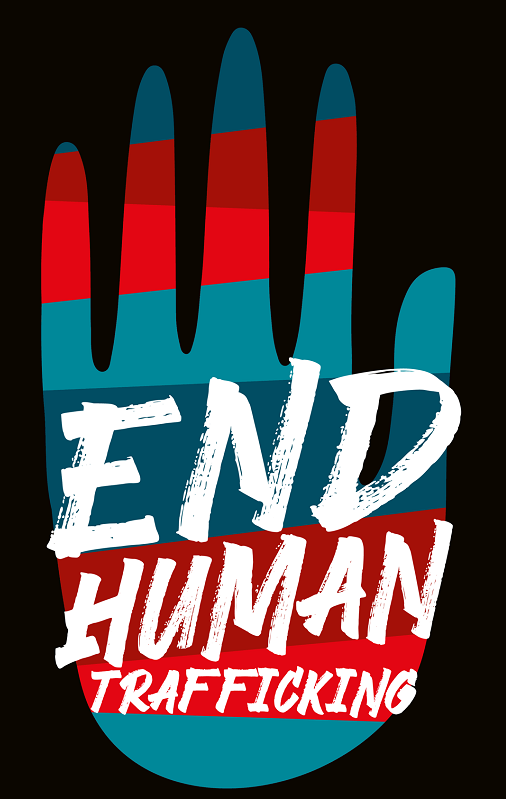Understanding and overcoming human trafficking
Anti-Human Trafficking
Empowering Veterans:
What is human trafficking?
Human trafficking is an umbrella term. Human trafficking means to control someone forcing them to work against their will. Control can be through physical force, threats, debts, or false promises. Traffickers often lure victims by offering them something they want or need, such as a job, love, a place to sleep, or a sense of belonging and community. Traffickers use threats, coercion, or tricks to force people to work or perform sexual acts against their will.
There are two types of trafficking:
- Labor Trafficking is when a person is forced into working against their will, often through threats or tricks in industries, for example, fishing industries, salons, domestic work, restaurant or food service, construction, and agriculture.
- Sex Trafficking is when a person is forced into providing sexual services for things of value, for example, money, housing, or drugs, in hotels, residential brothels, escort services, and strip clubs.
Does human trafficking affect Veterans?
Human trafficking is more likely to happen in communities where needs are greater.
Veterans' experience of human trafficking is still being understood. However, Veterans could be at a higher risk of experiencing human trafficking than the general population. This could be because of higher rates of the following risk-factors:
- Homelessness or unstable housing
- Substance use
- Mental health concerns
- Isolation
- Poor social support
- Food insecurity
- Physical or sexual abuse history
- Justice involvement
Veterans from the following historically marginalized communities may also be vulnerable to experiencing trafficking:
- Women
- Racial and ethnic minorities
- Sexual minorities (lesbian, gay, bisexual, or queer)
- Individuals with disabilities
Recognizing signs of human trafficking
Often, individuals experiencing human trafficking do not know what to call the experience. You might be experiencing labor and sex trafficking if someone has:
- Forced you to work against your will
- Refused to pay you or offer less compensation than you had agreed on
- Threatened to harm you or loved ones if you try to leave your situation
- Isolated you from friends, family, or other sources of support
- Taken your identification documents to control your movements
You might be experiencing sex trafficking if you are:
- Forced to perform sexual acts against your will.
- Punished if you refuse sex work clients.
Barriers to Veterans seeking care
Veterans who have experienced trafficking may find it difficult to talk about their experiences or seek help. This could be due to:
- Experiencing threats to personal or family safety
- Feeling guilt, shame, or self-blame
- Experiencing stigma or discrimination during previous healthcare visits
- Worrying that it is too late to report child or past trafficking experiences
- Fearing that drug use or sex work will be reported and jeopardize benefits or lead to an arrest
- Lacking trust in healthcare systems because of past injustices among historically underserved communities
- Unawareness of available support services and resources
Safety Tips
No matter what you have experienced, remember that it is not your fault. You deserve support and understanding. Here are some safety tips:
- Trust your feelings if something feels wrong
- Keep your important documents in a safe space
- Keep important phone numbers with you
- Develop a safety plan, such as signaling someone you trust if you need help
- Call 911 immediately if you're in danger or an emergency
What to do If you or someone you know is being trafficked?
If you or someone you know has been or is currently being trafficked, you can get help and support. Please consider the following resources:
VA Resources
VA offers help and support to Veterans experiencing human trafficking. Types of help available at the VA include:
- Individual counseling
- Group therapy
- Homeless programs
- Connection to community-based resources
Ask to speak with a VA social worker. Care Management and Social Work Services (CMSWS): https://www.socialwork.va.gov/Social_Work_Leaders.asp
Community Resources
- National Human Trafficking Hotline (NHTH): 1-888-373-7888
- Text HELP or INFO to 233733
- The NHTH is a toll-free hotline available 24/7 that connects victims and survivors with service providers and offers resources and assistance.
- Live Chat: https://humantraffickinghotline.org/en/chat*
- Trafficking in Persons & Worker Exploitation Task Force Hotline: 1-888-428-7581
- National Runaway Safeline: 1-800-RUNAWAY (1-800-786-2929)
- Rape, Abuse & Incest National Network (RAINN): 1-800-656-HOPE (1-800-656-4673)
- Department of Labor Wage and Hour Helpline: 1-866-487-9243
Web Resources
To learn more about human trafficking, explore the links listed below*:
Need Help?
There is a Social Work leader in every VA health care system to help you get the care you need. The Social Work leader will connect you to the VA employee who can assist, contact your local VA health care system social work leader.
![]() Disclaimer: *Links will take you outside of the Department of Veterans Affairs website. VA does not endorse and is not responsible for the content of the linked websites.
Disclaimer: *Links will take you outside of the Department of Veterans Affairs website. VA does not endorse and is not responsible for the content of the linked websites.





















